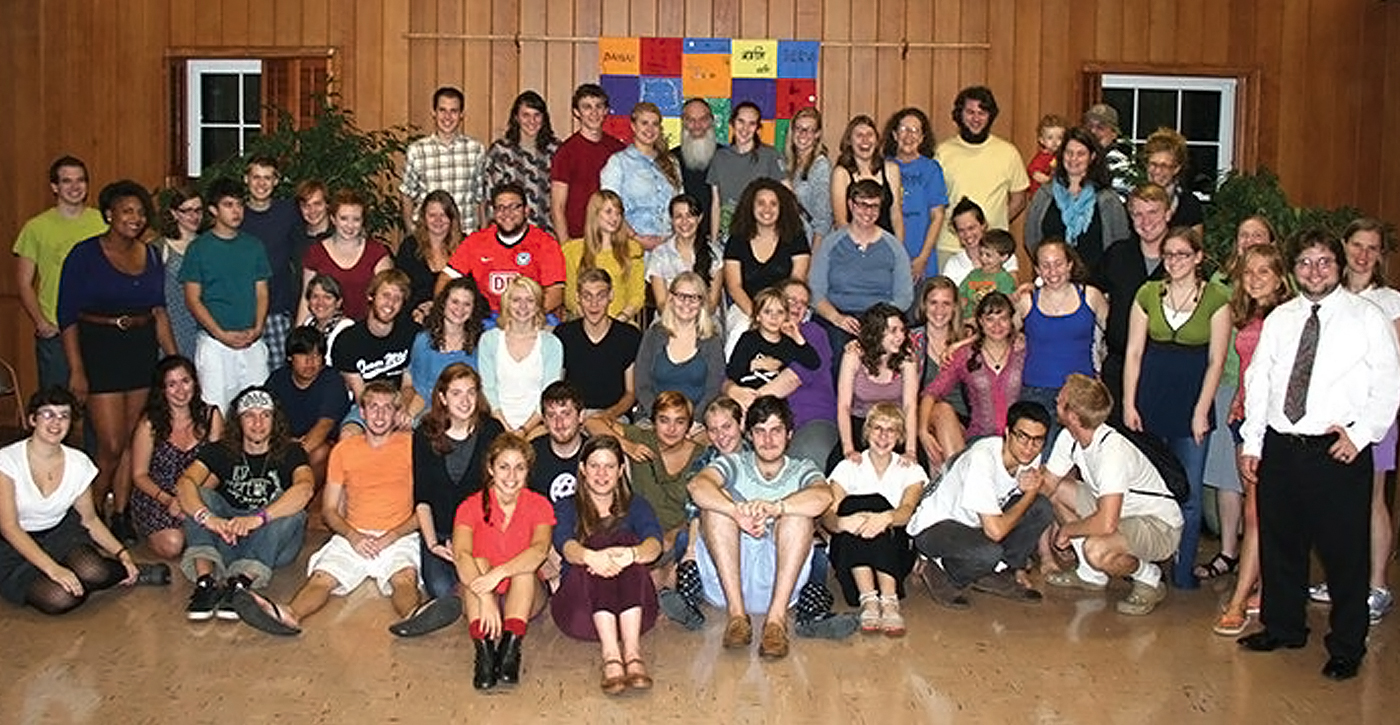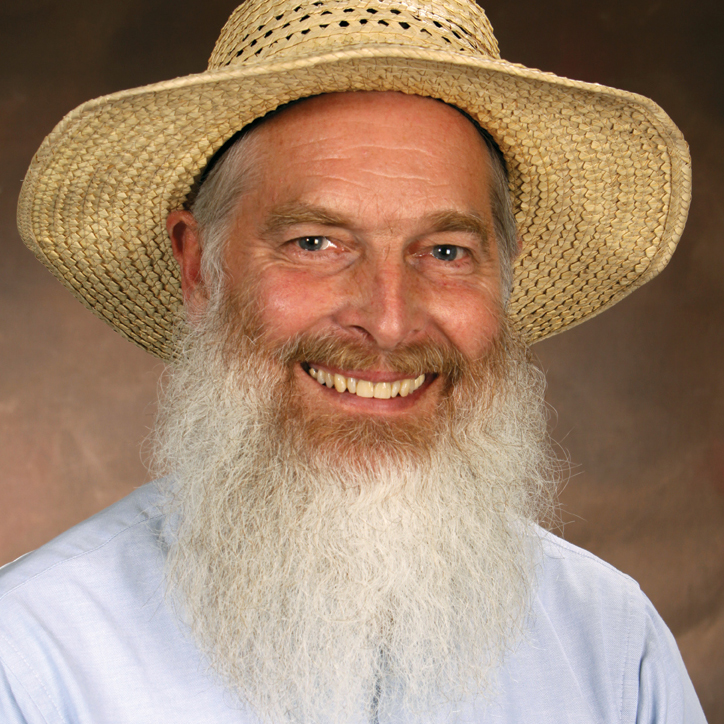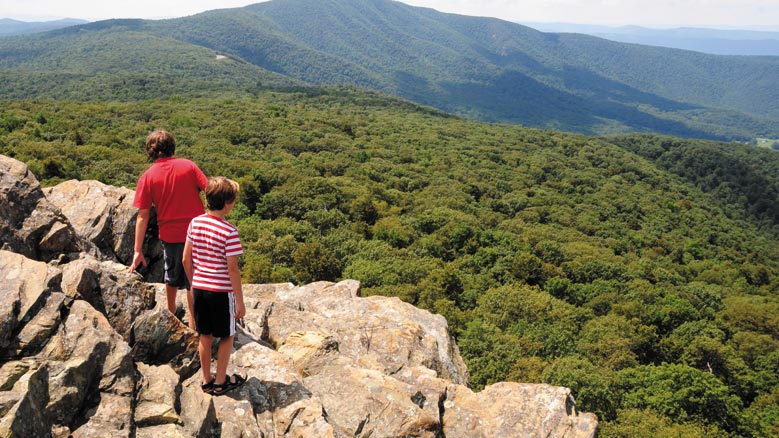The Beginnings of Guilford College’s Quaker Leadership Scholars Program
On a field trip to Philadelphia with Guilford College students in the mid-1990s, we visited an historic Friends meetinghouse in the suburbs and met with some of the members there. Upon learning that these students were part of Guilford’s new Quaker Leadership Scholars Program (QLSP), one person emphatically told them, “What’s the point? Quakers are a dying breed.”
Back in North Carolina, I shared about QLSP with a Friend who was a longtime supporter of Friends Center, and under whose auspices at Guilford, the program had begun in 1992. His response was that he wasn’t a fan of the initiative. “Leaders are the problem among Quakers,” he told me.
Indeed, by most metrics the Religious Society of Friends—at least in North America—has not fared well over the past several decades. Membership and attendance are declining; many meetings and churches have closed their doors; Quaker schools and organizations are hard-pressed to find Friends to serve on boards and in staff positions. And truth be told, in far too many cases, “leaders” have been the problem.
But when Friends Center initiated the QLSP program three decades ago, it was with a belief that there were clues in past Quaker practice that could be utilized in preparing a new generation of Friends for significant service to the Society. Even that, though, was subject to certain critiques: “Why put old wine in new wineskins?” was a familiar refrain. Why go back? We should be looking forward. Undaunted, and with staff old enough to remember weekly baths in old tin tubs, it was decided not to throw the baby out with the bath water.
What was taken as valuable practice in the past were the aspects of “old Quaker culture” that served as a funnel to direct young people into active membership and leadership among Friends. Most significant were the vibrant Quaker communities made up of devout Friends’ homes, active meetings, strong schools, and a host of devoted local Friends and traveling ministers who served as models and mentors. What better place to recreate that “funnel” than at a Quaker college in a community such as Piedmont, North Carolina, with its strong and diverse population of Friends?
As it was designed, QLSP took advantage of the courses on Quaker history at the college and added more in theology, spirituality, testimonies, and current topics. The more than three dozen Friends on staff at the college—and many others in the wider community—served as mentors and “spiritual friends.” Weekly worship, its own “monthly meeting” structure, and committee assignments schooled participants in the “peculiarities” of Quaker practice. Visits to area meetings and more than a dozen Quaker speakers who came to campus annually exposed the students to the breadth and depth of Quakerism.
All of this was intended to give direction to students who had interest in deepening their Quaker faith and ability to serve in their Friends community, to offer significant service to Quaker organizations or other groups representing Friends values, to carry their Quaker commitments into whatever their vocational choices might be, or to prepare for work among Friends as “professional” Quakers. Over the years, the program attracted students from the major branches of Friends from all over the United States and from Latin America, Palestine, Kenya, Rwanda, and Zimbabwe.
Clockwise: The first and third directors of QLSP, Max L. Carter and Deborah Shaw, in their early years with the program. QLSP alumnus and later first Friends Center intern. Nathan Sebens, a QLSP graduate and later the first intern for Friends Center, reads during the Halloween lantern tour of the New Garden Friends graveyard (holding the lantern, Max L. Carter). QLSPers on a Friends Disaster Service work project. 2014 end-of-semester gathering of QLSP in Ragsdale House, the home of the Guilford president (On the far right, then president Jane Fernandes and husband Jim). QLSPers at the starting line for the 2012 Shrove Tuesday pancake race, an annual tradition.
Has it worked? Others will have to be the judge of that. There have been more than 300 graduates of the program over its 30-year lifespan. Do their lives speak? I will offer only some of the evidence.
The QuakerSpeak YouTube channel that has introduced nearly five million viewers to topics in Quakerism was developed by a QLSP graduate. He has gone on to establish Thee Quaker Project, an outgrowth of QuakerSpeak which will further utilize modern media to share the Quaker message.
Quaker Voluntary Service, which now has units across the country and has proven to be an important outlet for service and spiritual growth, was founded by a QLSP graduate.
QLSP graduates have served on the staffs of Friends World Committee for Consultation, American Friends Service Committee, Friends Committee on National Legislation, Right Sharing of World Resources, Quaker United Nations Office, and with various monthly meetings and yearly meetings.
QLSPers have become recorded ministers and served pastoral and unprogrammed meetings. They have been campus ministers; educators in Friends elementary, secondary, and college institutions; public school teachers; and activists in organizations that share Quaker values. Many serve on the boards of Quaker organizations.
Several have become physicians, lawyers, journalists, homemakers, farmers, entrepreneurs, scientists, and businesspeople whose work is informed by Quaker testimonies.
And not incidentally, many have carried what they learned into other religious endeavors as they have been disappointed not to find the same spiritual community after graduation that they experienced while in QLSP. Among program alumnae/i are a Catholic nun, an Episcopal priest, a Lutheran minister, a devout Muslim, and others who have found a home and vocation in other denominations and religious practices.
What of QLSP today? It continues to be an active program at Guilford under the leadership of a 2012 graduate of the program who had been in the first cohort of Quaker Voluntary Service and is a recent graduate of the Earlham School of Religion. Of course, the program has evolved over the years to have different structures and areas of emphasis, and it has changed in one major way that may say more about the current character of Friends in the United States than about QLSP itself: While in its early years the program attracted students already active among Friends (and a goodly number of “ethnic” Friends with familiar surnames!), today the majority of participants are non-Friends who are using QLSP as a means of spiritual community and formation. There are significant changes at the college and surrounding Quaker community, too.
Thirty years ago, three dozen Quakers on staff at the college and a vibrant Friends community nearby and throughout the state provided rich resources for mentoring, experience of the varieties of Friends, and models of long Quaker service. Staff who identify as Friends at the college now number well under a dozen. Pillars of the local Quaker community have died—as have a few of the meetings in Guilford County active in 1992. North Carolina Yearly Meeting (FUM) dissolved recently, and the majority of meetings surviving its demise have little or no interest in partnering with the college and its programs. Those that do—and others in Conservative, FGC, and independent yearly meetings—don’t offer the same diversity that so enriched QLSP exposure before.
That QLSP graduates have risen to significant levels of leadership among Friends already may say more about the state of the Religious Society today than it does about the program, but at least there is no evidence thus far that QLSP leaders have been “the problem!” And the fact that more and more QLSPers are non-Friends rather than products of Quaker communities may give some credence to the Philadelphia Friend’s comment that Quakers are a “dying breed,” but the contributions of graduates of the program have been important and can, with proper Quaker humility, be celebrated.
Correction: This article first referred to Quaker Voluntary Service as Quaker Voluntary Witness; it has been corrected.











Since retiring from the faculty at Guilford College and moving to Raleigh, I have been an active participant in one of the newer yearly meetings — Piedmont Friends Yearly Meeting and Fellowship — and the recently formed Friends Committee on North Carolina Legislation (FCNCL). Since I knew them as students at Guilford, I have enjoyed noting the leadership roles of QLSP alumni in both organizations. Yet many others would not necessarily know of their QLSP background since they do not wear signs labeling themselves. Seems to me this is characteristic of what I view as good Quaker leadership, gently encouraging others while avoiding titles and special recognition. I am very grateful for their contributions and for the QLSP experiences they bring with them.
Hello; I am a baptized christian-roman catholic and I am an ally to a Friends Meeting house (Quaker) family from Flushing; Queens, N.Y.C. and deceased former President of the United States of America -(U.S.A.) -Richard Millhouse Nixon (centarian) and became interested in the religious teachings and the matrimonial vows of Quaker women but I am so disillusioned in the matter of how Quaker marriage and Quaker beliefs are progressively being taught with no regard with past Quaker tradition, history, reverence, honorable dress code and strict adherence towards Quaker will of the women who are either sprinkled or baptized. I hope God will direct Quakers whether converts or generational friend members into the path of God and eternal happiness! Quoting and deriving from the glorious, sorrowful, joyous and illuminous mysteries of the holy rosary of the Christian Roman catholic faith, religion and church Thank you and vivat Jesus -Mister -Efrank Giovanni Montalvo withdrawn memember of the fraternal order of the knights of Columbus of New Haven; Connecticut, United States of America- (U.S.A.) member i.d. number-no.# 4,023,914 and water baptized christian-roman catholic April 24, 1971-20th -century!